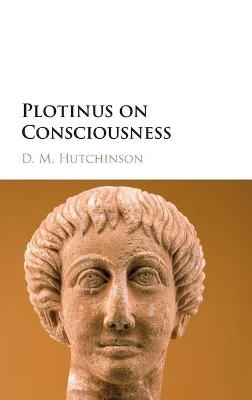
Plotinus on Consciousness
Seiten
2018
Cambridge University Press (Verlag)
978-1-108-42476-9 (ISBN)
Cambridge University Press (Verlag)
978-1-108-42476-9 (ISBN)
Examining the first theory of consciousness in Western philosophy, this book will be important for scholars interested in Plotinus and Neoplatonism. It will also appeal to historians of philosophy studying the mind-body problem and the problem of consciousness, as well as contemporary philosophers and cognitive scientists interested in consciousness.
Plotinus is the first Greek philosopher to hold a systematic theory of consciousness. The key feature of his theory is that it involves multiple layers of experience: different layers of consciousness occur in different levels of self. This layering of higher modes of consciousness on lower ones provides human beings with a rich experiential world, and enables human beings to draw on their own experience to investigate their true self and the nature of reality. This involves a robust notion of subjectivity. However, it is a notion of subjectivity that is unique to Plotinus, and remarkably different from the Post-Cartesian tradition. Behind the plurality of terms Plotinus uses to express consciousness, and behind the plurality of entities to which Plotinus attributes consciousness (such as the divine souls and the hypostases), lies a theory of human consciousness. It is a Platonist theory shaped by engagement with rival schools of ancient thought.
Plotinus is the first Greek philosopher to hold a systematic theory of consciousness. The key feature of his theory is that it involves multiple layers of experience: different layers of consciousness occur in different levels of self. This layering of higher modes of consciousness on lower ones provides human beings with a rich experiential world, and enables human beings to draw on their own experience to investigate their true self and the nature of reality. This involves a robust notion of subjectivity. However, it is a notion of subjectivity that is unique to Plotinus, and remarkably different from the Post-Cartesian tradition. Behind the plurality of terms Plotinus uses to express consciousness, and behind the plurality of entities to which Plotinus attributes consciousness (such as the divine souls and the hypostases), lies a theory of human consciousness. It is a Platonist theory shaped by engagement with rival schools of ancient thought.
D. M. Hutchinson is an Associate Professor in the Philosophy Department of St Olaf College, Minnesota.
Introduction; 1. Self; 2. Consciousness terms; 3. First layer: the soul-trace; 4. Second layer: the lower soul; 5. Third layer: the higher soul; 6. Self-determination; 7. Conclusion.
| Erscheinungsdatum | 24.05.2018 |
|---|---|
| Zusatzinfo | Worked examples or Exercises |
| Verlagsort | Cambridge |
| Sprache | englisch |
| Maße | 158 x 235 mm |
| Gewicht | 440 g |
| Themenwelt | Geschichte ► Allgemeine Geschichte ► Altertum / Antike |
| Geisteswissenschaften ► Philosophie ► Philosophie Altertum / Antike | |
| Geisteswissenschaften ► Psychologie ► Biopsychologie / Neurowissenschaften | |
| Geisteswissenschaften ► Psychologie ► Verhaltenstherapie | |
| Religion / Theologie ► Christentum ► Kirchengeschichte | |
| ISBN-10 | 1-108-42476-7 / 1108424767 |
| ISBN-13 | 978-1-108-42476-9 / 9781108424769 |
| Zustand | Neuware |
| Informationen gemäß Produktsicherheitsverordnung (GPSR) | |
| Haben Sie eine Frage zum Produkt? |
Mehr entdecken
aus dem Bereich
aus dem Bereich


